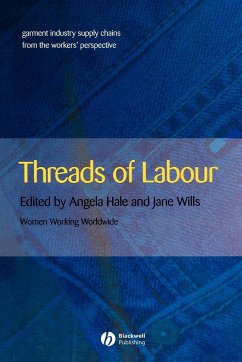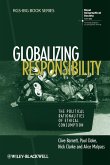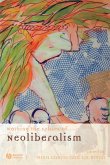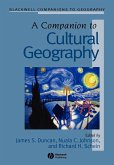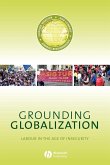Threads of Labour draws on a rich body of action research gathered by organisations supporting women workers in ten different garment-producing locations in Asia, Europe and Mexico. This research provides important new empirical information about the global garment industry and also creates a blueprint for conducting worker-oriented action research in order to better understand and resist the negative impact of globalization on labour. This book combines bottom-up research conducted by women workers' organisations with the latest academic research and debate. It seeks to ensure that workers' voices reach those who are trying to reconfigure global capitalism in more humane directions. Finally, it explores the ways in which workers might begin to develop new forms of organization that are more suited to securing gains in the global garment industry than those strategies deployed in the past.
"A vibrant, innovative and up-to-date book, that recognizes thediversity of women's experience of networked globalcapitalism and charts both their experience of exploitation andtheir strategies of resistance. Threads of Labour provides asober but constructive assessment of internationalmulti-stakeholder initiatives to improve conditions for garmentworkers."
Diane Elson, University of Essex
"I would highly recommend Threads of Labour to anyonewishing to learn the intricacies of the global garment industry,and what action can be taken to make change happen."
Red Pepper
"A ground-breaking and original study of the contestedgeographies of women working in the global garments trade.Theoretically, empirically and politically rich and innovative.This is one of the most sustained and exciting examples of actionresearch in the discipline."
David Featherstone, University of Liverpool
"This book gives valuable insights for decision-makers ininternational clothing brands. Read it and learn how garmentworkers worldwide are affected by the sub-contracted manufacturingthat characterises this industry."
Dan Rees, Director of the Ethical Trading Initiative
"A politically engaged, detailed and scholarly account ofglobal garment subcontracting ... This book is required readingfor researchers, students, and activists with a serious interest inglobal trade and global exploitation." Network
"An essential read for globalization scholars andactivists alike [and] breaks new ground by presenting a coordinatedresearch approach for analyzing global supply chains and how poweris constructed-and contested-through the links that bindthem."
Norma M. Rantisi, Concordia University, EconomicGeography
Diane Elson, University of Essex
"I would highly recommend Threads of Labour to anyonewishing to learn the intricacies of the global garment industry,and what action can be taken to make change happen."
Red Pepper
"A ground-breaking and original study of the contestedgeographies of women working in the global garments trade.Theoretically, empirically and politically rich and innovative.This is one of the most sustained and exciting examples of actionresearch in the discipline."
David Featherstone, University of Liverpool
"This book gives valuable insights for decision-makers ininternational clothing brands. Read it and learn how garmentworkers worldwide are affected by the sub-contracted manufacturingthat characterises this industry."
Dan Rees, Director of the Ethical Trading Initiative
"A politically engaged, detailed and scholarly account ofglobal garment subcontracting ... This book is required readingfor researchers, students, and activists with a serious interest inglobal trade and global exploitation." Network
"An essential read for globalization scholars andactivists alike [and] breaks new ground by presenting a coordinatedresearch approach for analyzing global supply chains and how poweris constructed-and contested-through the links that bindthem."
Norma M. Rantisi, Concordia University, EconomicGeography

